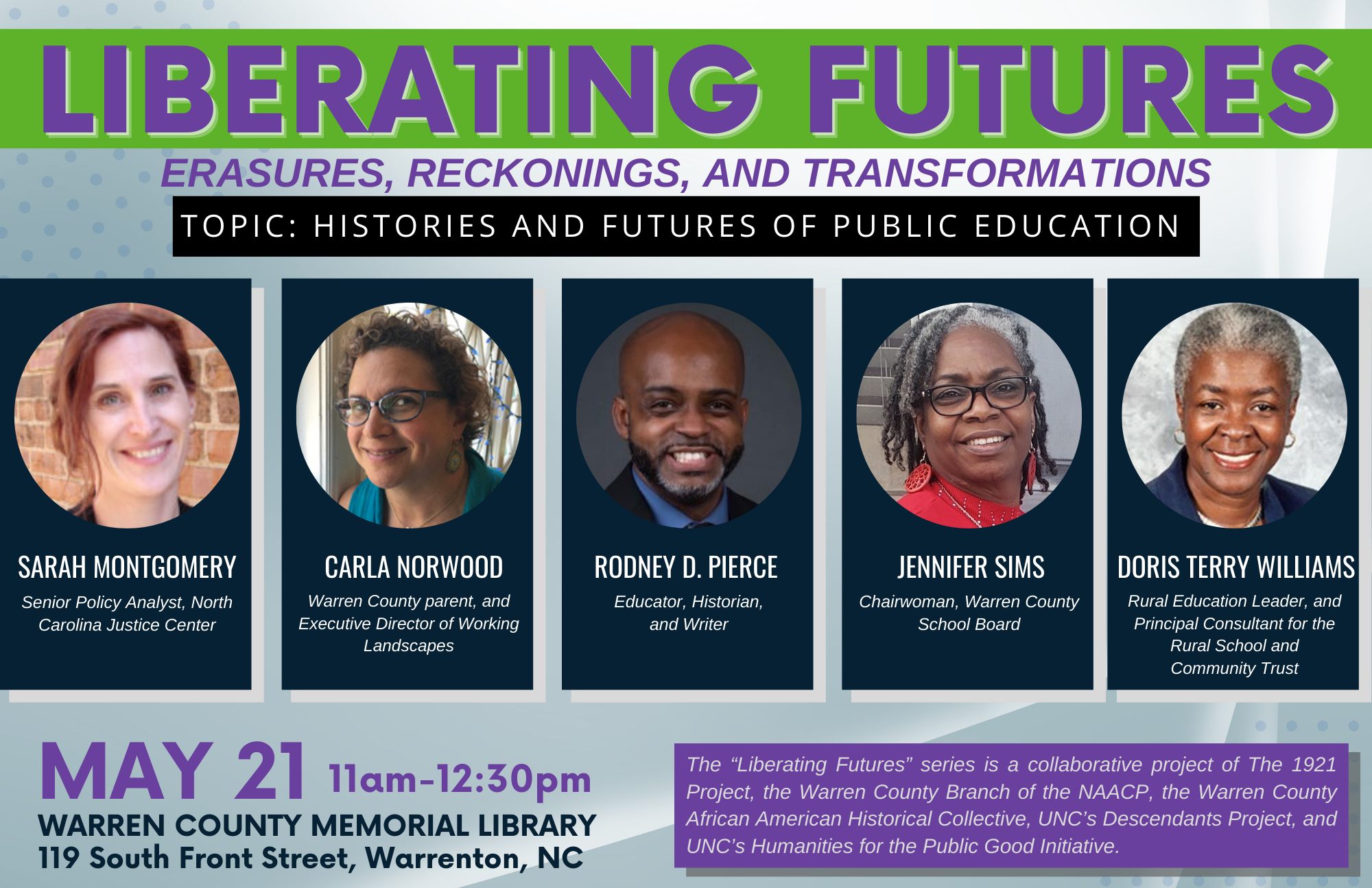Community
Next “Liberating Futures” Discussion Focuses On Histories and Futures of Public Education
The second panel in the “Liberating Futures: Erasures, Reckonings, and Transformations” series of public discussions focuses on education

Freedom and education walk hand-in-hand throughout the African American experience. The legacy of state laws that prohibited enslaved Africans from reading and writing—laws that took effect in North Carolina as early as 1818—continues to cast a shadow on our current educational system.
Even now, this legacy forces us to ask the questions, “What is the purpose of education?” and “How has public education been used as a means of social and political control?”
Answering these questions forces us to examine the “rise and fall” of public education in Warren County for its Black, white, Native American, Latinx, and other residents.
Warren County has long presented itself as a center of educational excellence, with a history of elite white private academies that stretches back to the early 1800s. These academies, however, served only the children of wealthy merchants and plantation owners; enslaved African Americans were punished for even showing an interest in learning how to read.
Black elder Henry Bobbitt, who grew up enslaved in Warren County, testified to this fact in a 1937 interview: “Now talking about something that we’d get a whipping for—that was for having a pencil and a piece of paper or a slate. If you just looked like you wanted to learn to read or write, you got a licking.” Immediately after Emancipation, however, African Americans in Warren County initiated a remarkable, decades-long campaign to create their own schools. In the late 1800s, a church association founded the county’s first Black institute of higher learning, the Shiloh Institute; within a few decades, every Black community in the county hosted its own schoolhouse, with much of the support coming directly from the community. Insuring quality education for their children—often in the face of white resistance—was always a priority for the county’s Black residents.
The “Histories and Futures of Public Education” panel brings together a group of distinguished educators and policy analysts to reflect on the history of education in Warren County and, more importantly, to share thoughts about transforming future educational policies and practices. Panelists will address the purpose of education in the 21st century, discuss the importance of including expansive and inclusive histories in school curricula, offer an update on the Leandro Case funding, and address the potentials of education from a parent’s perspective.
MODERATOR:
Doris Terry Williams – Rural Education Leader, and Principal Consultant for the Rural School and Community Trust
PANELISTS:
Sarah Montgomery – Senior Policy Analyst, North Carolina Justice Center
Carla Norwood – Warren County parent, and Executive Director of Working Landscapes
Rodney D. Pierce – Educator, historian, and writer based in eastern North Carolina
Jennifer Sims – Chairwoman, Warren County School Board
The “Histories and Futures of Public Education” discussion takes place on Saturday, May 21, 2022 at 11am at the Warren County Memorial Library (119 S. Front Street, Warrenton, NC).
The “Liberating Futures” series is a collaborative project of The 1921 Project, the Warren County Branch of the NAACP, the Warren County African American Historical Collective, UNC’s Descendants Project, and UNC’s Humanities for the Public Good Initiative.
This event is free and open to the public.